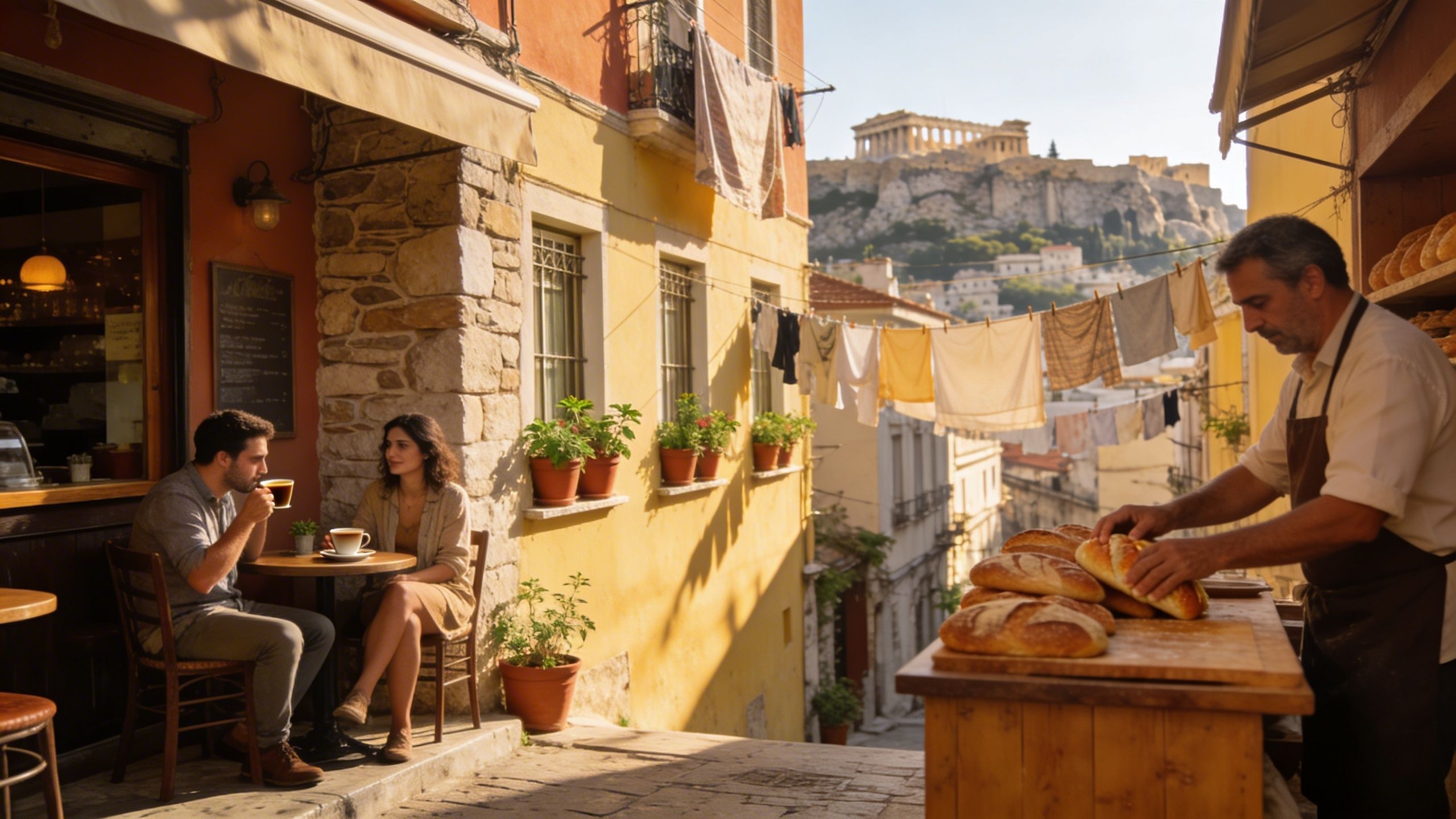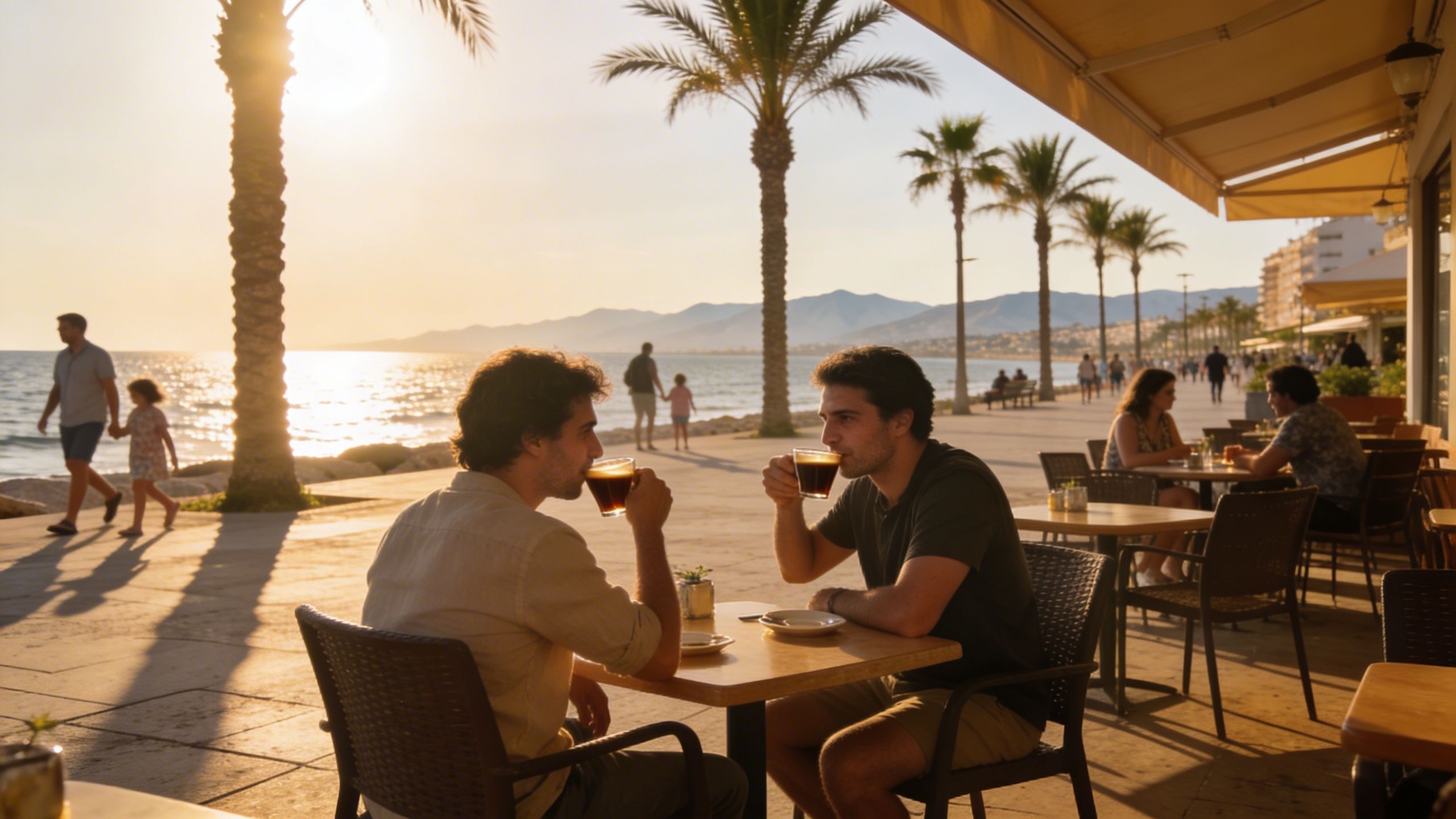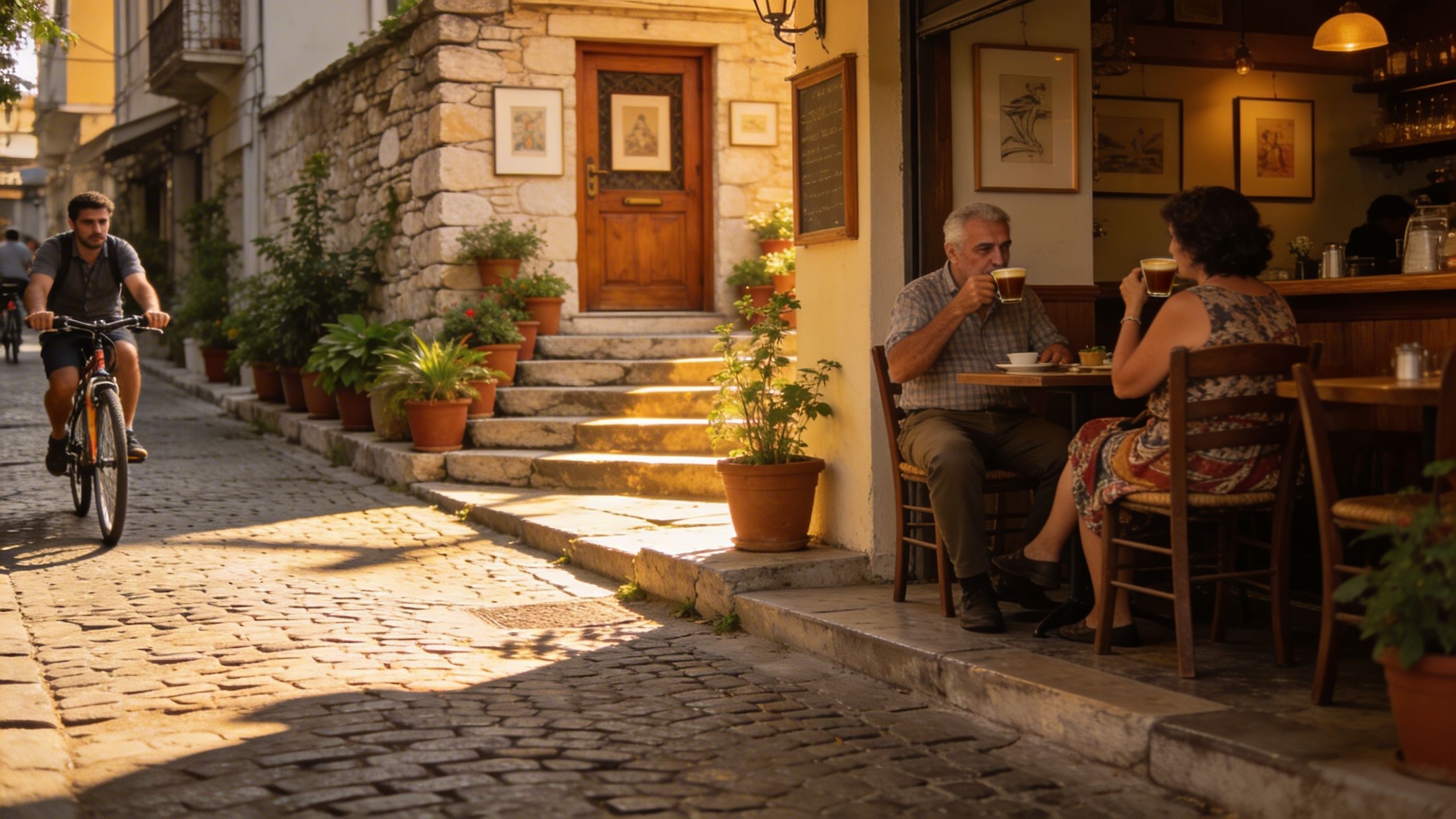Cyprus: Green Finance, Local Rules & Real-Life Living
Sun-drenched neighbourhoods, rising foreign demand, and new green loan options make Cyprus irresistible — but recent policy shifts and title risks mean tight compliance and smart green finance are essential.
Imagine waking before dawn to coffee and a sea breeze on a small terrace in Larnaca, then strolling past a fishmonger and a grandmother selling halloumi at a market stall. Cyprus holds days like that — slow mornings, warm afternoons undone by siesta shade, and evenings made for long dinners under bougainvillea. For many international buyers the island is a sensory promise: sun-washed stone, fragrant pine, and a neighbour who knows your name. But to shape that promise into a durable, sustainable home you need more than longing: you need clear finance choices, local compliance know-how, and a sense of which seasonal rhythms shape value here.
Living Cyprus: the rhythm that sells the place
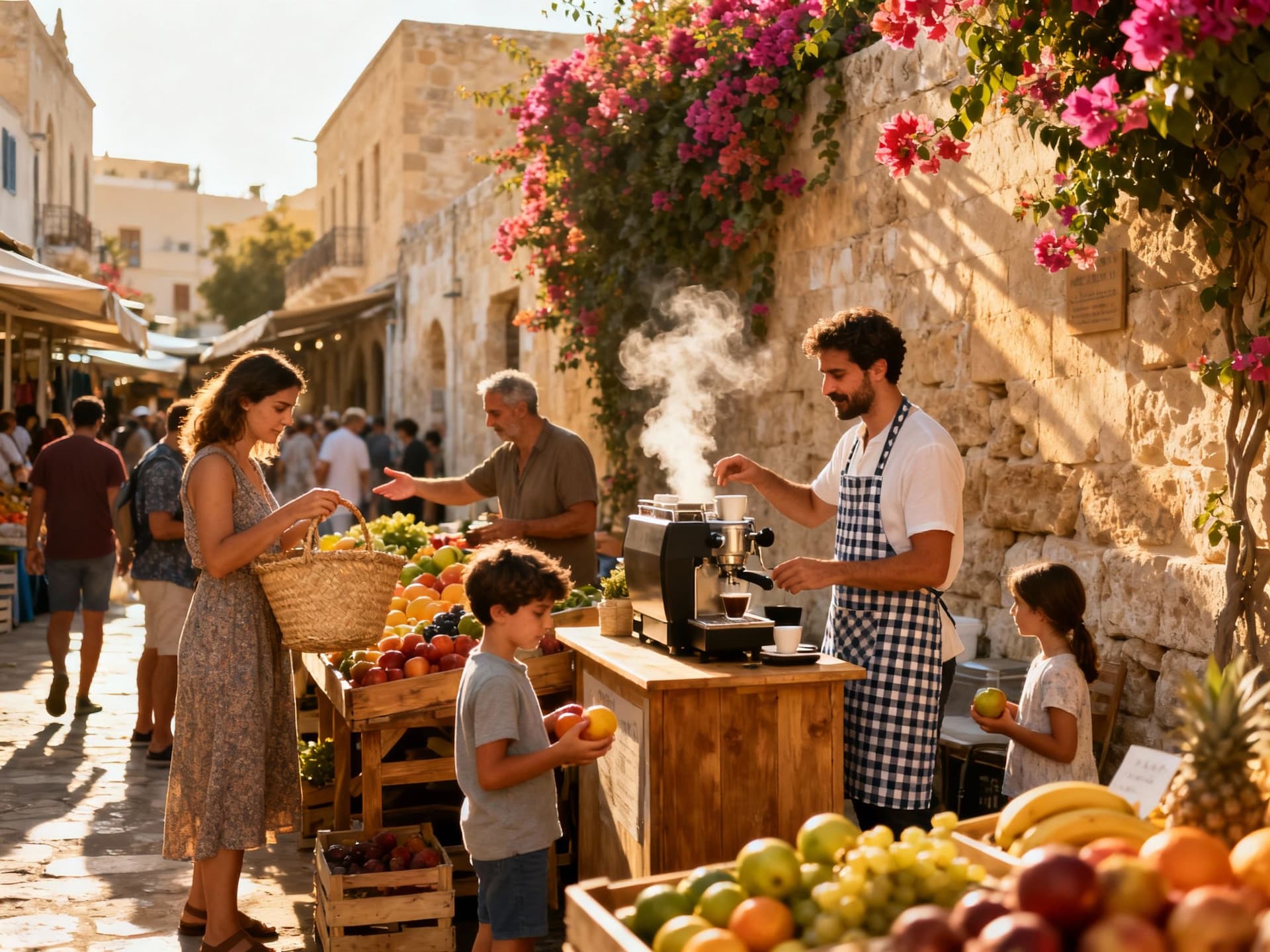
Cyprus is not one uniform postcard — it is seaside promenades, mountain villages, airport-side suburbs and old-town lanes. Limassol pulses with cosmopolitan cafés and a yacht-lined promenade; Paphos mixes archaeology with coastal calm; Nicosia hums with bureaucracy and neighbourhood bakeries. For buyers who choose place by feeling, the island’s variety is its charm, and recent figures show strong foreign interest concentrated in Paphos, Limassol and Larnaca, a signal that lifestyle demand is shaping market flows. Knowing which micro-climate and cultural tempo you crave will narrow both neighbourhoods and mortgage options.
Larnaca mornings, Paphos sunsets — neighbourhoods that feel alive
Walk Larnaca’s Finikoudes at 8am and you meet retired sailors, young parents with scooters and a barista who remembers your order. In Paphos, Coral Bay’s beaches melt into quiet inland lanes with stone houses and citrus groves, while Limassol’s Molos boardwalk keeps late-night culture and seaside running clubs in constant motion. These daily textures shape practical preferences too: apartments close to cafés suit part-time residents, while villas with cisterns and solar-ready roofs answer buyers seeking self-sufficiency.
Food, markets and small rituals that matter
The island’s food life — a fisherman’s stall at Larnaca market, a simmering souvlaki joint in old Nicosia, or a Sunday taverna in Kourion — defines why people move here. Seasonal produce informs how gardens and terraces are used, and local craftsmen can often retrofit homes with reclaimed stone or timber to blend sustainability with authenticity. When you picture life in Cyprus, include the weekly market run; it is as much a civic ritual as a grocery trip and often the place you meet the neighbours who become friends.
Making the move: finance, green loans and the fine print
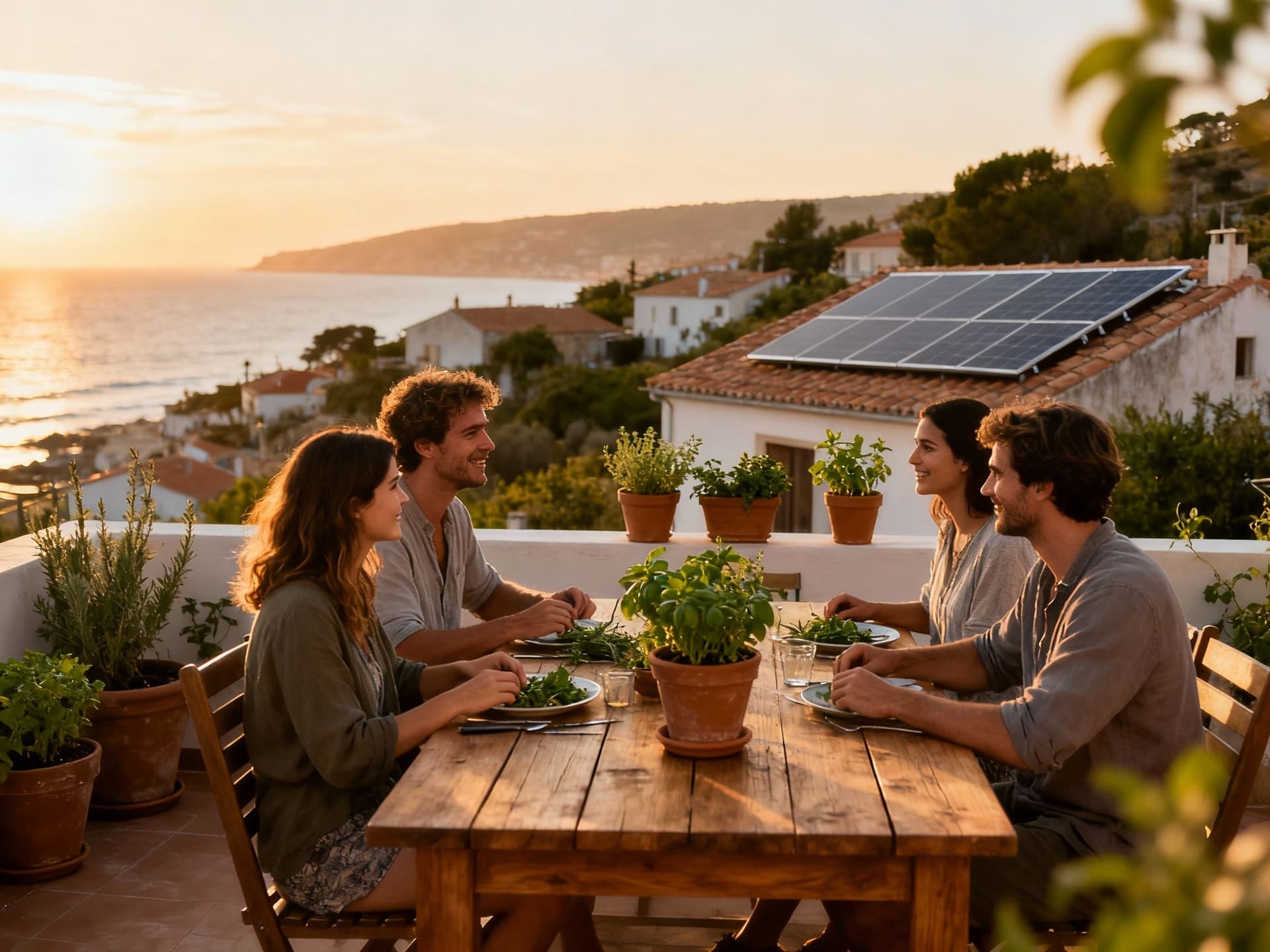
Dreams meet documents here: Cyprus allows substantial foreign ownership but recent proposals aim to tighten rules around sensitive land and transfers, so timing and legal clarity matter. Lenders vary widely — local banks will lend to non-residents but often require larger deposits and stricter underwriting than for citizens. If sustainability is part of your plan, several Cypriot banks and EU-backed schemes now offer preferential terms for solar installation, energy-efficient renovation, or new builds with green certifications. Combining a traditional mortgage with a targeted green loan can lower lifetime costs and raise resale appeal.
Property types and what they mean for finance
A village stone house often needs renovation: banks treat that differently from turnkey apartments, and lenders will size loans to post-renovation value only in some cases. New coastal developments in Limassol and Larnaca are attractive to buyers who want immediate rental income, but they may carry higher service charges and stricter HOA rules affecting energy upgrades. If you favour off-grid or low-impact living — think solar PV, rainwater capture, and greywater reuse — budget for technical plans and seek lenders who recognise energy upgrades as value-add rather than risk.
How local experts help you marry lifestyle with compliant finance
A good local agent connects you to green-savvy architects, bilingual notaries, and mortgage officers who have processed non-resident files — saving weeks of back-and-forth. Expect your adviser to request building permits, title history, and proof of seller compliance with foreign-acquisition rules; recent enforcement increases make this step non-negotiable. Agencies that specialise in sustainable homes can also advise on grants or EU funding lines for efficiency upgrades, turning an aesthetic choice into an economic advantage.
Insider knowledge: what expats wish they'd known
Expat lessons blend the poetic and the procedural. People tell us the best mistakes are small: underestimating summer sun on a west-facing terrace, or not checking if an assignment contract masks unclear title in contested areas. There are also bigger pitfalls: listings on the northern part of the island can carry legal risk; recent prosecutions and court action underline the need for clear title and local legal counsel. Learning from others saves time, money and a great deal of stress.
Cultural cues that change how you live — and thus what you buy
Cypriot social life is neighbour-forward: you’ll find doors open at celebrations, and invitations that start with coffee and end in a feast. This affects property choices — homes with a courtyard, shaded outdoor dining or a communal garden invite this local rhythm. Learning key phrases in Greek or Turkish and attending local events speeds integration and often uncovers off-market opportunities. Homes bought with social intent — places meant for gatherings and reciprocity — tend to appreciate both financially and in life satisfaction.
Long-term lifestyle planning: seasons, resilience, and stewardship
Think beyond summer: winter rains refill reservoirs, spring wildflowers define hillside trails, and prolonged heat spells are becoming part of planning for energy and water resilience. Sustainable investments — well-insulated walls, smart shading, PV systems and efficient heat pumps — reduce living costs and protect value against changing climate patterns. Stewardship also means community: support local conservation groups, source materials locally during renovations, and consider water-wise landscaping to keep biodiversity thriving around your home.
- Lifestyle + sustainability highlights to look for when touring properties in Cyprus: • South-facing terraces with integrated shading • Rainwater cisterns and greywater options • Thick stone walls or retrofitted insulation • Space for PV and battery storage • Proximity to markets, small harbours or village squares • Evidence of legal title and recent municipal permits
- A practical step-by-step when ready to make an offer: 1. Commission title and encumbrance search with a Cyprus notary or lawyer. 2. Obtain a written mortgage pre-approval and outline green-loan options. 3. Ask for EPC/energy performance details or a basic audit estimate. 4. Negotiate contract terms that include timelines for permit transfers and any agreed upgrades. 5. Register the transfer and ensure utility meters and municipal rates are updated post-completion.
Cyprus is a lived island — its best qualities appear in daily rituals, shared meals and the ease of stepping outside. If you love light, neighbourly streets, and a life where your garden yields fruit for the table, it can be an extraordinary place to root. Pair a lifestyle-first wish with disciplined finance and compliance planning: seek green-aware lenders, insist on clear title searches, and work with agencies who understand local seasonality and sustainable upgrades. Do that and the terrace morning coffees will be more than a picture; they’ll be the start of a life.
Danish relocation specialist who moved from Copenhagen to the Algarve; supports families with seamless transitions, local partnerships, and mindful purchases.
